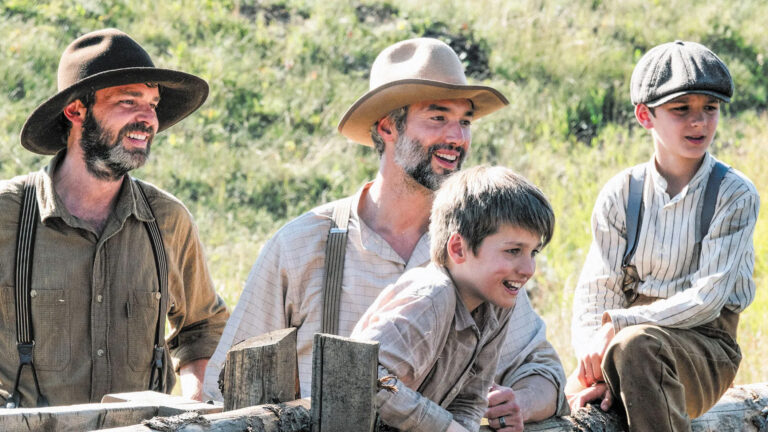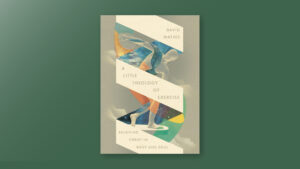Originally published in Portuguese in 1988, Paulo Coelho’s The Alchemist has since been translated into 56 languages and sold more than 20 million copies worldwide. Why does this novel resonate with so many?
In his introduction to the English translation, Coelho at first claims not to know, but he goes on to suggest that perhaps it’s because “we all need to be aware of our personal calling.” This, I am sure, is one of its many appeals, but it’s not the only one, nor is it as blithely positive as it might seem.
Purposeful Life
Despite our otherwise pessimistic age, The Alchemist‘s popularity shows us that we still very much long for a meaningful life—-a life structured around a single purpose. For those who haven’t read it, the novel recounts the adventures of a young shepherd by the name of Santiago. He studies theology at the urging of his parents, who want him to become a priest, but as Coelho puts it, “ever since he had been a child, he had wanted to know the world, and this was much more important to him than knowing God and learning about man’s sins.” With the blessing of his father, Santiago leaves the seminary at 16, buys a few sheep and begins a fulfilling life as a shepherd—-fulfilling, that is, until he dreams about a child who transports him to the Egyptian pyramids and tells him: “If you come here, you will find a hidden treasure.”
Confused by this dream, Santiago seeks out the advice of a local gypsy and in the process meets that ancient king Melchizedek, who tells him that his dream depicts his “Personal Legend”: “It’s what you have always wanted to accomplish.” Following his dream would mean giving up the satisfaction and comfort of shepherding, and while Santiago struggles with this decision, he ultimately sells his flock and heads to Egypt. He encounters various obstacles along the way, not least of which is the temptation to settle for opportunities good in their own right—-a successful job at a crystal store and marrying a virtuous (and beautiful) young woman—-but that would ultimately derail his pursuit of his “Personal Legend.” Santiago overcomes these with the help of an alchemist, who guides him in reading the signs of the great book of nature. He discovers the treasure, which is, in fact, back in Spain and later marries the beautiful young woman.
Throughout the work, Coelho drills home the message that everyone has a “Personal Legend”—-a “personal destiny,” a “mission on earth.” “To realize one’s destiny,” Melchizedek tells Santiago, “is a person’s only real obligation.” “God has prepared a path for everyone to follow,” he continues. “You just have to read the omens that he left for you.” Moreover, true happiness can only be found in accomplishing this mission. Santiago does, and the novel ends with the youth in ecstasy. Yet the story is also full of unhappy characters who have settled for something less than their “Personal Legend.” A baker who had wanted to travel never does because he values how others see him more than his dream, and a crystal merchant never takes his trip to Mecca because he has become accustomed to his shop and the success it has brought him.
Spiritualized Selfishness
At the same time, the book shows us that we prefer self-rule to subjection. Coehlo suggests, using some pretty heavy-handed pantheism, that the source of our “Personal Legend” is ourselves, our personal desires, which turn out to be the very desires of God because “all things are one.” That desire may be wealth, as it is for Santiago, or it may be a longing for a particular person or the pursuit of a religious discipline. Whatever the desire, it is right and good, and the universe “conspires” to help us achieve it—-“there is a force,” Coelho writes, “that wants you to realize your Personal Legend,” and that force is God. Thus, Coelho takes Christ’s teaching in Matthew 6:21, which is meant to encourage us to love God, not his creation, and inverts it by equating the two. Evil, in turn, is defined as that which tempts us to ignore our personal desires. Coehlo writes, for example, “Everyone, when they are young, knows what their Personal Legend is”:
At that point in their lives, everything is clear and everything is possible. They are not afraid to dream, and to yearn for everything they would like to see happen to them in their lives. But, as time passes, a mysterious force begins to convince them that it will be impossible for them to realize their Personal Legend.
That we either cannot or should not follow our dreams, Coehlo writes, is “the world’s greatest lie.” In short, he offers his readers a spiritualized selfishness, encouraging them, in sugary prose that makes Walt Disney look like a deconstructionist, to follow their heart.
The novel also reflects our culture’s low esteem of reason. In the second part of the work, Santiago encounters a young Englishman searching for the alchemist. He is well-read and shares his books with Santiago. Yet the Englishman is generally depicted as missing the forest for the trees. Santiago reads the books (which include the Bible, the Qu’ran, and many other religious and philosophical works) and concludes that they overcomplicate what, to his mind, is so simple. He learns only what he already knew—that “the world has a soul, and that whoever understands that soul can understand the language of things—and tells the Englishman, to his disappointment: “But, above all, I learned that these things are all so simple that they could be written on the surface of an emerald.” The alchemist, in turn, tells Santiago that one cannot understand the world “by reason alone” and that the great book of the world has more to teach us than what Coelho surely views as mere human books.
New Age Legalism
Despite all its feel-good clichés, the novel can be rather cold in another respect. It states fairly clearly that only those who work hard at achieving their “Personal Legend,” persisting through all difficulties, will ultimately succeed. Those who fail only have themselves to blame. This is the dark side of self-rule, but it’s something that Coelho, and perhaps many others, are willing to accept to maintain the fantasy of personal autonomy.
While Coelho claims to be a Catholic, the novel promises readers what all other religions except Christianity promise: personal salvation, not by grace through faith, but, in the words of Milton’s Satan, by our own “unconquerable will.”
Free Book by TGC: For Graduates Starting College or Career
 Many young people are walking away from Christianity—for reasons ranging from the church’s stance on sexual morality, to its approach to science and the Bible, to its perceived silence on racial justice.
Many young people are walking away from Christianity—for reasons ranging from the church’s stance on sexual morality, to its approach to science and the Bible, to its perceived silence on racial justice.
TGC’s book Before You Lose Your Faith: Deconstructing Doubt in the Church is an infusion of hope, clarity, and wisdom in an age of mounting cynicism toward Christianity.
For anyone entering college or the workplace and looking for a timely reminder of why Christianity is good news in a skeptical age, make sure to get your FREE ebook Before You Lose Your Faith today!






























